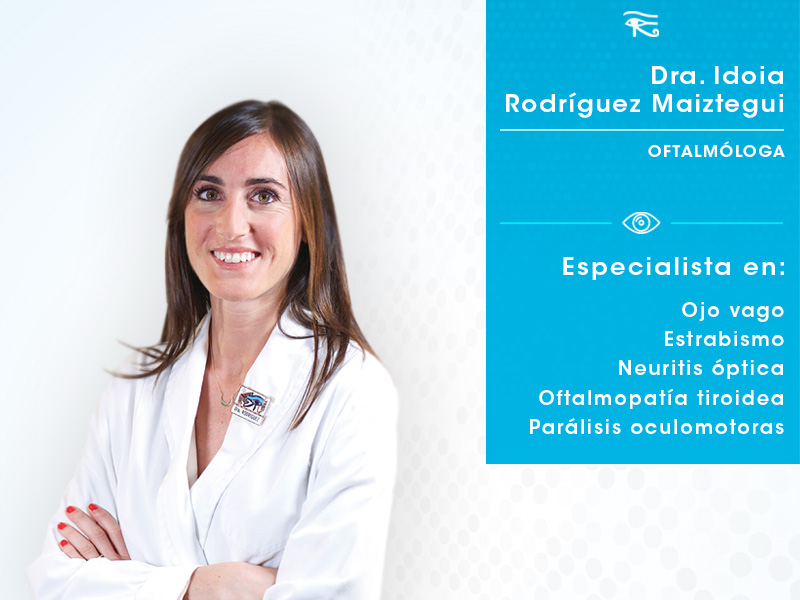All about the skin around the eyes and “drooping” eyelids
04/04/2025

15/03/2016
Has medicine always been your vocation or did you have other professions in mind?
When I was a little girl, I knew that I wanted to be a doctor. In all honesty, no other career path ever crossed my mind. Because my father was an ophthalmologist, medicine was always a part of our family surroundings, and this must have made a dent on my choice to some extent.
How did you end up at the Barraquer Ophthalmology Centre? Was it always your top choice as a place to do your residency?
My father also trained at the Barraquer Centre and he always showed us his pride and admiration for the Institute. After deciding to go into Ophthalmology, I would frequently visit him there and watch him perform surgery from the stands in the amphitheatre. The Barraquer Centre has been and is still a worldwide leader in its specialist area and Professor Joaquín Barraquer is an expert on the history of ophthalmology. Training under his tutelage is a privilege, it was a personal dream that I finally accomplished.
What makes the Ophthalmology Centre what it is today?
Since it was founded, the Centre has been at the forefront of ophthalmology. It is the symbol of four generations of innovative work, which has revolutionised the way that many conditions are diagnosed and treated. Its hierarchy is organised in such a way that each member of the team has a sub-specialisation in a different area, thus guaranteeing all-round and individual care. This tradition of excellence has been key in giving the centre worldwide recognition as an outstanding institution for teaching, research and patient care. The balance between scientific rigour and the high level of compassion and dedication to patients bestows a unique and inimitable style upon the Centre.
Why did you decide on the strabismus as your sub-specialisation? Did you have a particular interest in it?
Both my choice to go for Ophthalmology and my subsequent decision to study a sub-specialism in the strabismus are career progressions that I always wanted. I’ve always been interested in this specialisation, as it’s a very complete topic; it’s made up of two different aspects: on one hand, paediatric ophthalmology and childhood strabismus; and on the other hand, adult strabismus, which allows me to embrace a wide range of pathologies. There is no comparison with visiting children on a daily basis. Paediatric consultation is truly gratifying and it was one of the fundamental points in my decision. Furthermore, the strabismus is a surgical sub-specialism. Using current techniques, we can guarantee that the child’s sight develops correctly, avoid double vision from which some patients suffer and improve their physical appearance. The results of this type of surgery are very good and it’s really invigorating.
What has been your most fulfilling or satisfying moment in your career as a doctor?
In my case, dedicating my life to the young patient, whose visual system is still in development, and the ability to prevent eyesight from ruin are the most enriching aspects of my career. I remember the first patient I treated, giving him glasses and eye patches when I began my sub-specialisation. In just a few months, he went from having blurred vision to strong visual acuity. The child’s joy and the satisfaction in the parents’ eyes are difficult to forget.
When you went to Africa as a medical volunteer with the Barraquer Foundation, what did you expect from your experience?
I had seen photos from previous trips, and had talked to my colleagues, who had gone before, about their experiences, so I was really excited at the opportunity to finally get my feet on the ground over there and get to work. I took on the new adventure with great enthusiasm and respect at the same time, as I knew that a few intense days of work lay ahead in conditions that wouldn’t be as optimum as those I was used to.
And in the end, how was it in comparison with what you had expected?
I was really affected by the harshness of what I saw. The work was really intense, but the reward was even greater, well beyond any of my previous expectations. Being a first hand witness of how the lives of these patients change after cataract surgery and the smile on their faces when their vision is restored brings you such a degree of indescribable satisfaction. It’s an undoubtedly addictive experience. I’ve been lucky enough to go out on 5 trips with Dr. Elena Barraquer and I always come back feeling exhausted, but happy with a job well done and having contributed, to some extent, to improving the quality of the lives of people who need it so much.